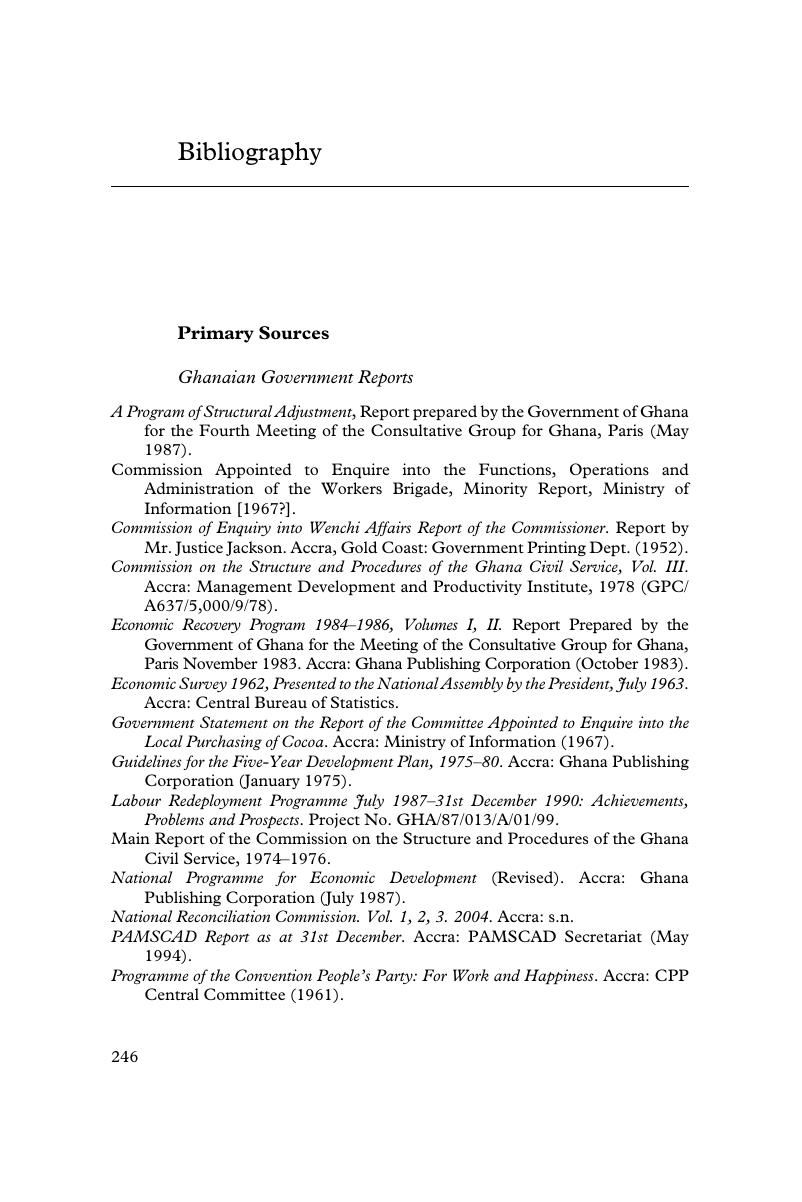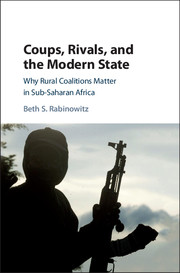Book contents
- Coups, Rivals, and the Modern State
- Coups, Rivals, and the Modern State
- Copyright page
- Dedication
- Contents
- Figures
- Tables
- Plates
- Acknowledgements
- Introduction
- Part I Setting the Stage
- Part II Forging Coalitions
- Part III Consolidating Power
- Part IV Reversal of Fortune
- Conclusion
- Bibliography
- Index
- Plate Section (PDF Only)
- References
Bibliography
Published online by Cambridge University Press: 09 February 2018
- Coups, Rivals, and the Modern State
- Coups, Rivals, and the Modern State
- Copyright page
- Dedication
- Contents
- Figures
- Tables
- Plates
- Acknowledgements
- Introduction
- Part I Setting the Stage
- Part II Forging Coalitions
- Part III Consolidating Power
- Part IV Reversal of Fortune
- Conclusion
- Bibliography
- Index
- Plate Section (PDF Only)
- References
Summary

- Type
- Chapter
- Information
- Coups, Rivals, and the Modern StateWhy Rural Coalitions Matter in Sub-Saharan Africa, pp. 246 - 296Publisher: Cambridge University PressPrint publication year: 2018



